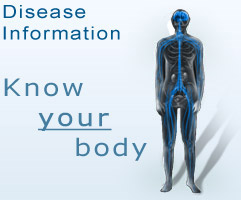Tourette syndrome
What is Tourette syndrome?
Tourette syndrome is a neurological (nervous) condition which causes the patient to make repetitive, involuntary and unusual movements or sounds which are called ‘tics'. The condition is named after Dr Georges Gilles de la Tourette, a French neurologist who first described the condition in his patient in 1885. Common examples of tics include blinking and throat clearing. People who experience these ‘tics' will usually have little or no control over them. The symptoms for most people diagnosed with Tourette syndrome are mild, but some may experience more severe symptoms.
What causes Tourette syndrome?
Although the exact cause of Tourette syndrome is unknown, it is well established that both genetic and environmental factors play a role. Current research points to abnormalities in certain brain regions that are responsible for communication among nerve cells. The pattern of inheritance is much more complex, but the condition could be inherited from one parent.
Who can get Tourette syndrome?
Tourette syndrome can usually be seen to present before the age of 11 years and in about half of children with Tourette syndrome, the tics will disappear by the time they reach the age of 18. Tics which continue into adulthood may gradually improve over time in many persons still affected. However in some people, tics may return later in their adult life.
What are the symptoms of Tourette syndrome?
People with Tourette syndrome may often know that they are going to have a tic before it actually occurs.
Motor tics: Motor tics involve unusual movements that may be mild (called ‘simple tics') or more extreme (called ‘complex tics'). Examples of motor tics include blinking, shrugging the shoulders, kicking, jumping, moving the body in odd ways, grimacing (briefly making a face as if they are angry or in pain), jerking the head or scratching.
Vocal tics: Vocal tics involve unusual sounds, words or phrases that do not make sense or appear to be odd. Examples of vocal tics include repeating words or phrases (such as echoing what other people say), throat-clearing, grunting or swearing.
What treatments are available for Tourette syndrome?
Children and adults who have Tourette syndrome will not always need medical treatment unless their tics are severe. A person with Tourette syndrome may require treatment if their condition is interfering with their activities of daily living such as dressing and eating, attending school, going to work or interacting with other people.
Medication: Treatment may include medication, such as botox (botulinum toxin), which is an injection that relaxes the muscles. This treatment calms or blocks the nerve signals that cause muscle jerking or twitching and also assist with lowering the number of tics a person experiences.
Habit-reversal training: Some patients may benefit from treatment by working with a therapist. The training will enable the Tourette's patient to recognise when they are going to have a tic, and thereafter the person will train themselves to do a different movement that will make it difficult to do the tic. Habit-reversal training may however not be as freely available everywhere.
How can I learn more about Tourette syndrome?
You should consult your family doctor or a qualified healthcare professional if you, or someone you know, are experiencing these symptoms. You can also read up about the condition at your public library or on the internet - try to reference medical websites for reliable and reputable sources.
References
UPTODATE®. Tourette syndrome. Website. www.uptodate.com
 TransmedBanner4.jpg)

